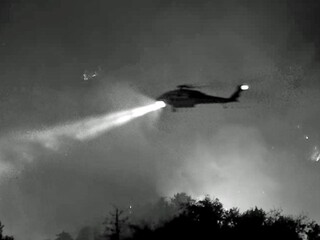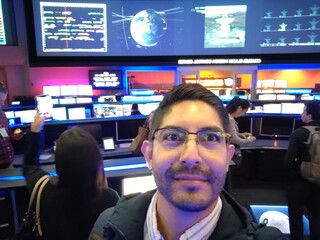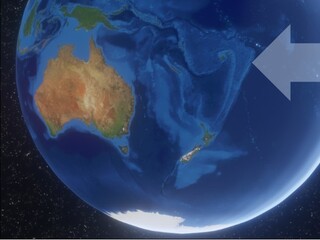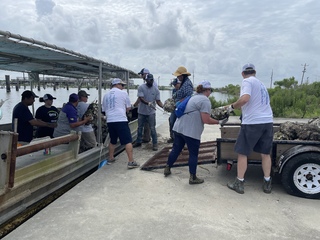Earth Science Stories | January 12, 2022
Career profile: How Hui Su became an atmospheric scientist at NASA-JPL
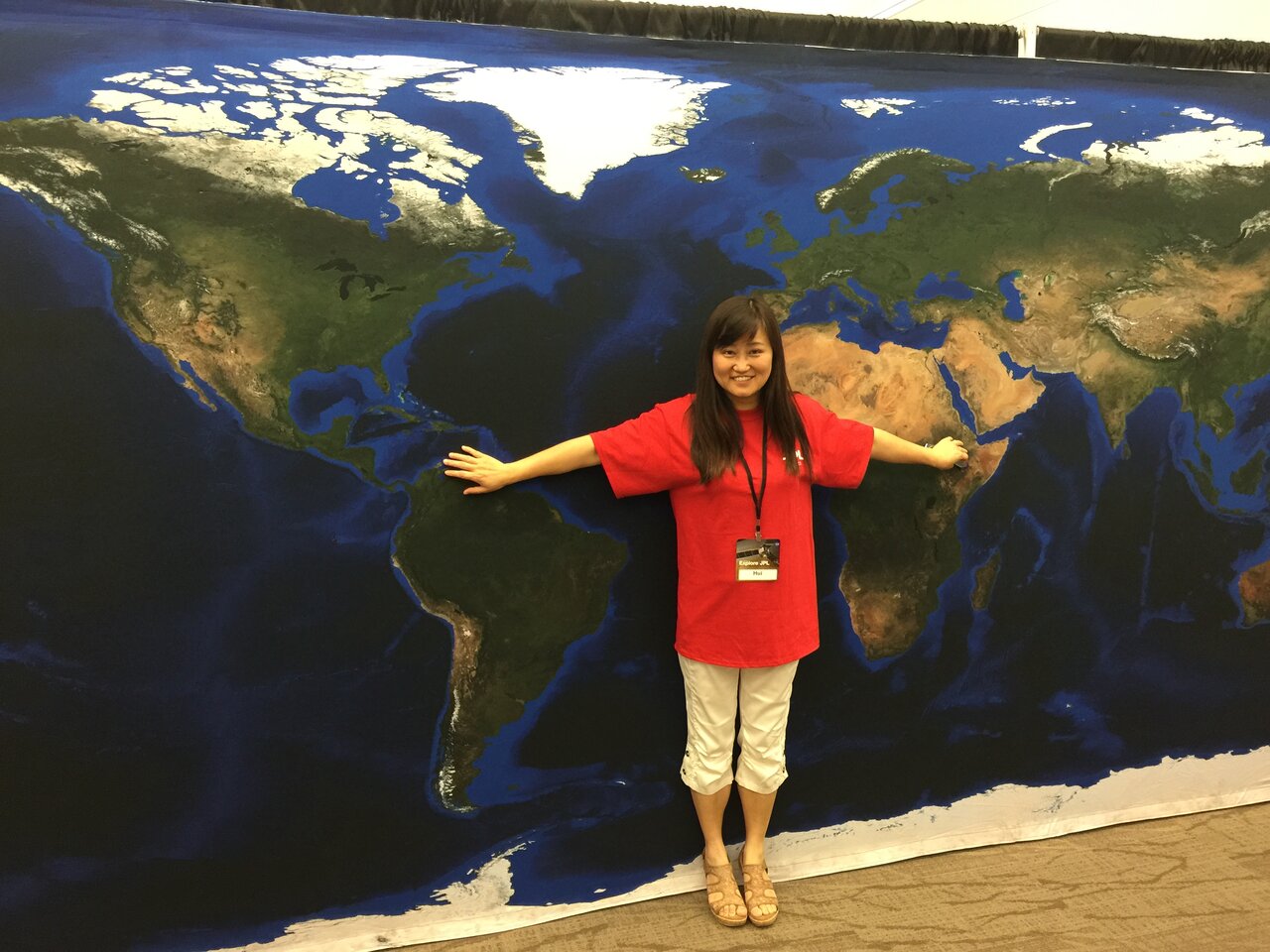
Hui Su is an earth scientist at NASA's Jet Propulsion Laboratory who studies clouds and storms.
What’s your topic of research?
I study any sort of storm where scurrying clouds, strong winds, lightning, thunder, and heavy rain move in an organized way. Hurricanes are an example. I’ve been at JPL since 2005.
What did you want to be when you were little?
My parents were both meteorologists. In fact, they even met and got married at their jobs. So I had an early interest in that, and basically, I’ve been studying weather all my career.
When I was young, the meteorologists in China lived with their families in the same complex where the office buildings were. So, I grew up in a complex like that with about 20 other kids who were just my age. We used to all bike together to and from school, stopping to play on the roadside. And when we got back to the complex, we would watch the weather balloons being released. They were huge white hydrogen balloons, and as they rose, they measured temperature, wind, and pressure.
What was the weather like in your hometown?
My hometown, Chengdu, is famous for its clouds. You rarely see blue skies. It’s because we’re in a basin surrounded by mountains, right by the Tibetan Plateau. Because of our location, in the summer, we would get a lot of thunderstorms and flooding, and one time we even had a huge flood in our own meteorology complex that caused a lot of damage.
What were your college days like?
I was at Peking University, where doing further studies abroad was very popular. So, I followed in those same footsteps and was admitted to the atmospheric dynamics doctoral program at the University of Washington in Seattle. I really liked Seattle. Like Chengdu, it's also famous for its rainy days, and that reminded me of home. It’s a beautiful city with lots of lakes, and the skyline is just lovely. I’d buy seafood at the famous Pike Place Market, and although I’m not that good at cooking, we’d have potlucks with groups of friends. We did many outdoors activities together, from skiing in the winter to beach trips in the summer, to crab-hunting in the Puget Sound.
How did you end up at JPL?
I first came to Los Angeles to do research at UCLA. I focused on El Niño, and eventually that led to my job at JPL. I’ve been researching clouds and hurricanes this whole time, often using satellite data to draw conclusions. Hurricanes cause so much damage, and we’re still not very good at predicting how powerful they will be. That’s a big reason I’m drawn to studying them – I want to help improve the forecast.
How do you like Los Angeles?
Initially, it was a blast, because I felt, wow! I really love all the palm trees and the sunny skies! But now, twenty years later, I really miss the rain. There are too many dry days here, and I really feel the drawback of not having enough water in California. Otherwise, I feel that JPL is a great place. I’m constantly impressed by the missions we launch into space – they are all miracles to me. I’m constantly inspired by what I see happening.
What do you do for fun?
I like hiking, and I like dancing – not really on the stage, but as a work-out. I have a group of friends and we all like to exercise to Chinese folk-dancing. Then one time, we performed at the Lunar New Year party at JPL. We made the top news on the JPL internal newsletter, “Universe”!
What’s one of the hardest parts of your job?
There’s a tremendous pressure to always stay at the top. I think that’s a positive thing, but it can also add a lot of stress to always maintain yourself at the forefront of research. I’m worried about being not competitive enough for funding grants. A way to relieve the pressure is to form teams and work together with others. That’s a way to share the burdens. We’re constantly exploring new directions and making our research diversified.
What if someone can’t see a clear career path from their childhood like you did?
My career path was almost too simple! I stayed in my major and have been doing that ever since. But for people with a more winding path, it’s okay. People do change, and I’d advise them to follow their heart and do what they’re passionate about and then stick to it.


